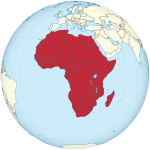Pope Francis, who passed away at the age of 88 on Easter Monday, leaves behind a legacy that stretches far beyond the confines of the Vatican. While his papacy will be remembered for its compassion and humility, it was also marked by an unmistakable boldness—especially in the way he confronted some of the most pressing and controversial issues of our time. From climate change to economic inequality, Pope Francis challenged not only the Catholic Church but the entire world to rethink its values.
A Green Papacy with Global Impact
Pope Francis made history in 2015 by publishing Laudato Si’, the first papal encyclical dedicated entirely to the environment. In it, he called the Earth “our common home” and declared that environmental destruction was a moral issue, not merely a scientific or political one. This marked a major shift in the Vatican’s engagement with ecological concerns, giving the climate movement a powerful moral and spiritual ally.
Unlike previous papal teachings that often steered clear of politics, Francis openly criticized the consumerist and profit-driven systems he believed to be harming both the planet and the poor. He didn’t hesitate to rebuke world leaders and corporations for their environmental negligence, urging them to adopt sustainable practices and honor their obligations to future generations.
A Critic of Unfettered Capitalism
In numerous speeches and writings, Pope Francis emerged as a vocal critic of what he described as “the economy that kills.” He warned that an unchecked free market fosters inequality, poverty, and exclusion. For him, the pursuit of wealth, when detached from ethical considerations, becomes a form of idolatry. This perspective struck a chord in many parts of the world, especially among those suffering under the weight of economic disparity.
He frequently condemned the “globalization of indifference,” where wealth accumulation by the few blinds society to the suffering of the many. In doing so, he championed economic models rooted in dignity, community, and care for the vulnerable—models that clashed sharply with neoliberal orthodoxy.
A Legacy That Defied Convention
The death of Pope Francis has prompted a wave of reflection not just among Catholics, but across political and ideological lines. His willingness to confront climate change, inequality, and injustice made him one of the most politically engaged pontiffs in recent memory. Yet he managed to retain a deeply spiritual presence, grounded in simplicity, mercy, and love for the marginalized.
Even in death, the world continues to reckon with the ideas he courageously put forth. His funeral, attended by leaders from every corner of the globe, underscored the magnitude of his influence. Mourners wept not just for the man, but for the voice he represented—a voice that dared to say the world must change, and that morality must lead the way.
Pope Francis may be gone, but his radical messages live on. In a time of crisis, he reminded humanity that conscience must never be silent and that compassion must never be optional. His papacy was not merely an era in church history—it was a call to action






